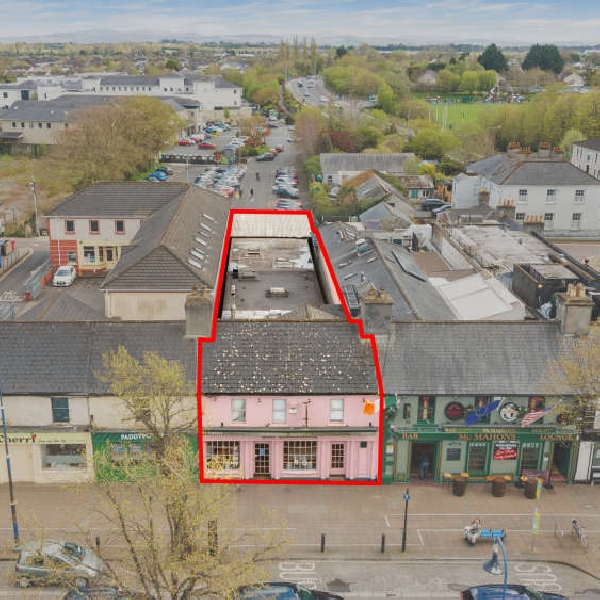
Diagnosed with bi-polar II
In 2018, Kildare singer, Arlene Bailey was diagnosed with bi-polar II.
According to the HSE, bipolar is a mood disorder, where a person experiences extreme mood swings.
Her father had passed away, suddenly, just a few months earlier.
Arlene says, "since I was about 15 I knew there were issues with my mental health".
"I did think I was depressed, I didn't know I had a mood disorder. I didn't understand that when I was low, that would normally be followed by high moods.
The difference with me, when I'm high & low, I could sleep for a week when I'm depressed, when I'm high I could paint the entire house at 5 in the morning. I was too preoccupied with the lows to notice the highs."
She noted after the passing of her father "I have problems now, I really need to get them sorted, it all came to light then."
Arlene attended a psychiatrist, where she received the diagnosis.
She refers to trial & error when the team was "trying to get the dosage & medication correct".
"I urge people to own it, the stigmas has gone - those days are gone now. There's no harm in saying I have a problem."
Listen back to Arlene's interview on Monday's 'Kildare Focus':
Helplines:
Samaritans 116 123 (24/7)
Aware 1800 80 48 48 (10am - 10pm, 7 days a week)
Mental Health Support Text Service 50808 (24/7)
Pieta House 1800 247 247 (24/7)
Bereavement Support Line 1800 80 70 77 (10am-1pm, Mon-Fri)
Additional information on bipolar from the HSE's website:
"Bipolar disorder is a serious mental illness and is considered to be a mood disorder. Early diagnosis is important so you can decide on the best form of treatment.
If you have bipolar disorder you will have extreme mood swings. These can range from extreme highs (mania) to extreme lows (depression).
Episodes of mania and depression often last for several weeks or months.
These can range from extreme highs (mania) to extreme lows (depression).
Episodes of mania and depression often last for several weeks or months.
Depression
During a period of depression, your symptoms may include:
- feeling sad, hopeless or irritable most of the time
- lacking energy
- difficulty concentrating and remembering things
- loss of interest in everyday activities
- feelings of emptiness or worthlessness
- feelings of guilt and despair
- feeling pessimistic about everything
- self-doubt
- being delusional, having hallucinations and disturbed or illogical thinking
- lack of appetite
- difficulty sleeping
- waking up early
- suicidal thoughts
Mania
The manic phase may include:
- feeling very happy, elated or overjoyed
- talking very quickly
- feeling full of energy
- feeling self-important
- feeling full of great new ideas and having important plans
- being easily distracted
- being easily irritated or agitated
- being delusional, having hallucinations and disturbed or irrational thinking
- not feeling like sleeping
- not eating
- saying things that are out of character, often risky or harmful
During a manic phase, extreme positive feelings about yourself or your life could lead to risky actions or unwise decisions. These could have negative consequences for your finances, work or relationships."



 116 New Student Accommodation Beds Promised For Maynooth University As Part Of Govt. Investment
116 New Student Accommodation Beds Promised For Maynooth University As Part Of Govt. Investment
 Mid-East Region Grapples With Rising Homelessness: 149 Children, 297 Single Adults Among Those in Need
Mid-East Region Grapples With Rising Homelessness: 149 Children, 297 Single Adults Among Those in Need
 Gardaí Appealing For Information In The Whereabouts Of Two Teenage Girls In Kildare
Gardaí Appealing For Information In The Whereabouts Of Two Teenage Girls In Kildare
 Improved Bus Services To Connect Dunlavin And Kilcullen To Newbridge
Improved Bus Services To Connect Dunlavin And Kilcullen To Newbridge
 116 New Student Beds To Be Developed In Maynooth University Under €100 Million Investment
116 New Student Beds To Be Developed In Maynooth University Under €100 Million Investment
 Family's Anguish: Kildare Teen's Dual Diagnosis Leaves Him Stranded In Healthcare Limbo
Family's Anguish: Kildare Teen's Dual Diagnosis Leaves Him Stranded In Healthcare Limbo
 Garda Commissioner Orders Re-Examination Of Stardust Fire Files
Garda Commissioner Orders Re-Examination Of Stardust Fire Files
 Maynooth's Elite Bakery Site, Described As Ideal Opportunity For Residential Conversion, On Market For €1.25m
Maynooth's Elite Bakery Site, Described As Ideal Opportunity For Residential Conversion, On Market For €1.25m



